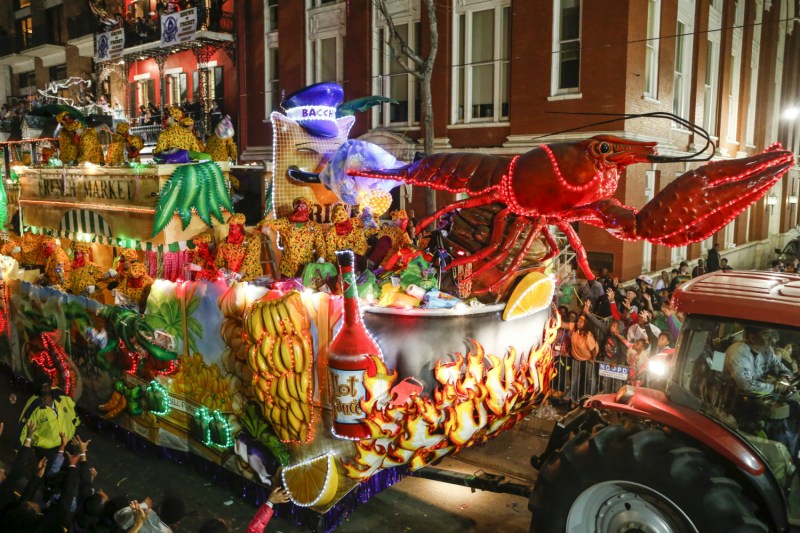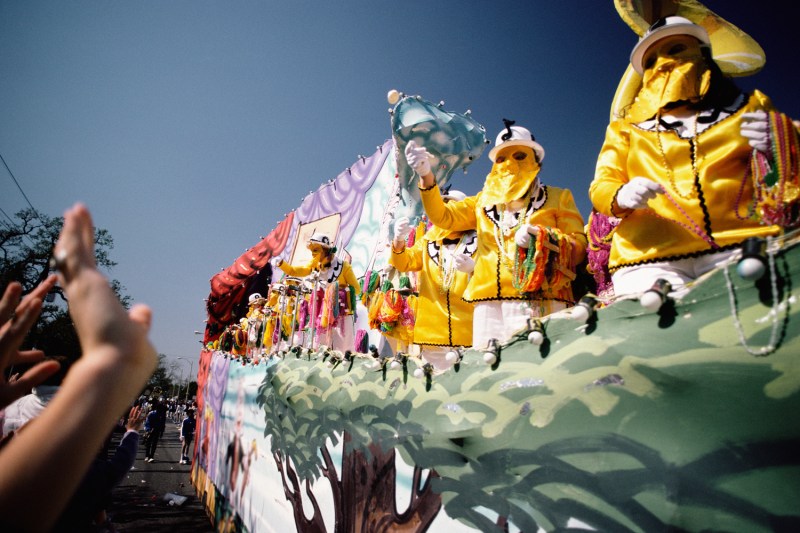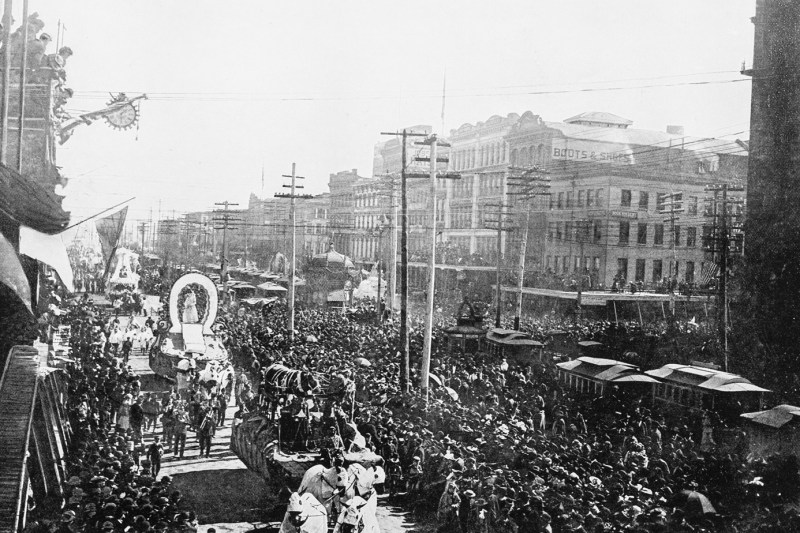
It’s the time of the year again: Mardi Gras. The celebration that starts the Lenten season is held around the world, but the most famous celebration is in New Orleans, Louisiana. The question, then, is why? For many (or at the very least sex-driven college-aged males), Mardi Gras is a chance to hop a flight to New Orleans, drink copious Hurricanes or three-for-one beers, put on some wild Mardi Gras outfits, and throw beads at people in an attempt to see some public nudity.
Would you be shocked to find out that that isn’t the real reason for Mardi Gras? Amazing, right? Take a breath. We know that might’ve rocked your world, but it’ll be okay.
If you peel the layers of the onion that is Mardi Gras, you’ll find a Catholic holiday rich in history and tradition that spans the globe. While many of us here in the U.S. may associate it with New Orleans, king cakes, and Krewes, there’s actually a lot more to it. Read on to find out more about the history of

What Mardi Gras means
Mardi Gras is French for “Fat Tuesday” and refers to the ritualistic eating of generally unhealthy foods (hello, king cake) and meat before the traditional 40 days of fasting that accompany the season of Lent in the Catholic faith.
The first Mardi Gras celebrations
The celebration of Mardi Gras — also known as Shrove Tuesday or Pancake Day, depending on where you are — dates back to Medieval times in Europe. Feasting on the days leading up to Ash Wednesday, which begins the Lenten season of fasting, was common in Italy and France, and these traditions eventually made their way to the New World with the French.
(Note: We’ll be focusing on the Christian holiday of Mardi Gras, but before the Christians got hold of the celebrations, pagans across the world celebrated various spring and fertility rites that included celebrations, feasting, and debauchery of all sorts. These types of celebrations can be seen in various Carnival festivities around the world.)

The first Mardi Gras in the U.S.
In 1699, an explorer — Jean Baptiste Le Moyne Sieur de Bienville — landed about 60 miles south of the place that would become New Orleans (the city itself would be established 19 years later by Bienville). Landing on the eve of Mardi Gras, he named the place “Pointe du Mardi Gras” as a means of honoring the holiday. This is seen as the first celebration of the holiday in the U.S.
Evolution of Mardi Gras
Over time, the celebrations that began at Point du Mardi Gras began to grow. There were parades and street parties (not like those today, mind you), high society balls, and more.
The parties continued over the next few decades until the Spanish took over New Orleans in the 1760s and worked to shut down what they viewed as depraved celebrations. The restrictions continued until the U.S. government took over in the early 1800s. From then until 1837, the holiday was recognized but not encouraged.

The first Mardi Gras parade and the first Krewe
After decades of suppression, the first official (read: recorded) Mardi Gras parade took place in 1837. Parades and elegant balls continued in the following years, but by the early 1850s, they had begun to wane in popularity.
In 1857, six men established a secret group that they named the Mistick Krewe of Comus. The Krewe of Comus held a themed parade — “The Demon Actors in Milton’s Paradise Lost”– as well as a ball, working hard to reinvigorate the holiday in the Big Easy.
Mardi Gras: 1857 to today
From the time of the first Krewe, Mardi Gras continued to grow. More Krewes formed (the second of which, the Twelfth Night Revelers, formed in 1870) and the celebrations and parades attracted more and more people.
Two years after the Revelers formed, Rex, the King of Carnival, was created as a persona to oversee the Mardi Gras daytime parades. The social clubs that presided over the parades and balls are the ones primarily responsible for the

Dressed to the nines: Mardi Gras outfits
If you’re planning on heading down to New Orleans for Mardi Gras or just having a party at home, you need to put some thought into your
That’s because Mardi Gras is the best time to put on an over-the-top outfit or costume and party away. As you can see from some of the pictures in this article, the more fantastical and colorful your
And if you’re looking for a more low-key outfit but still want to be in the spirit of things, choose something that incorporates the traditional Mardi Gras colors of purple, green, and gold — you’ll fit right in.
Now grab your beads and go have some fun!



